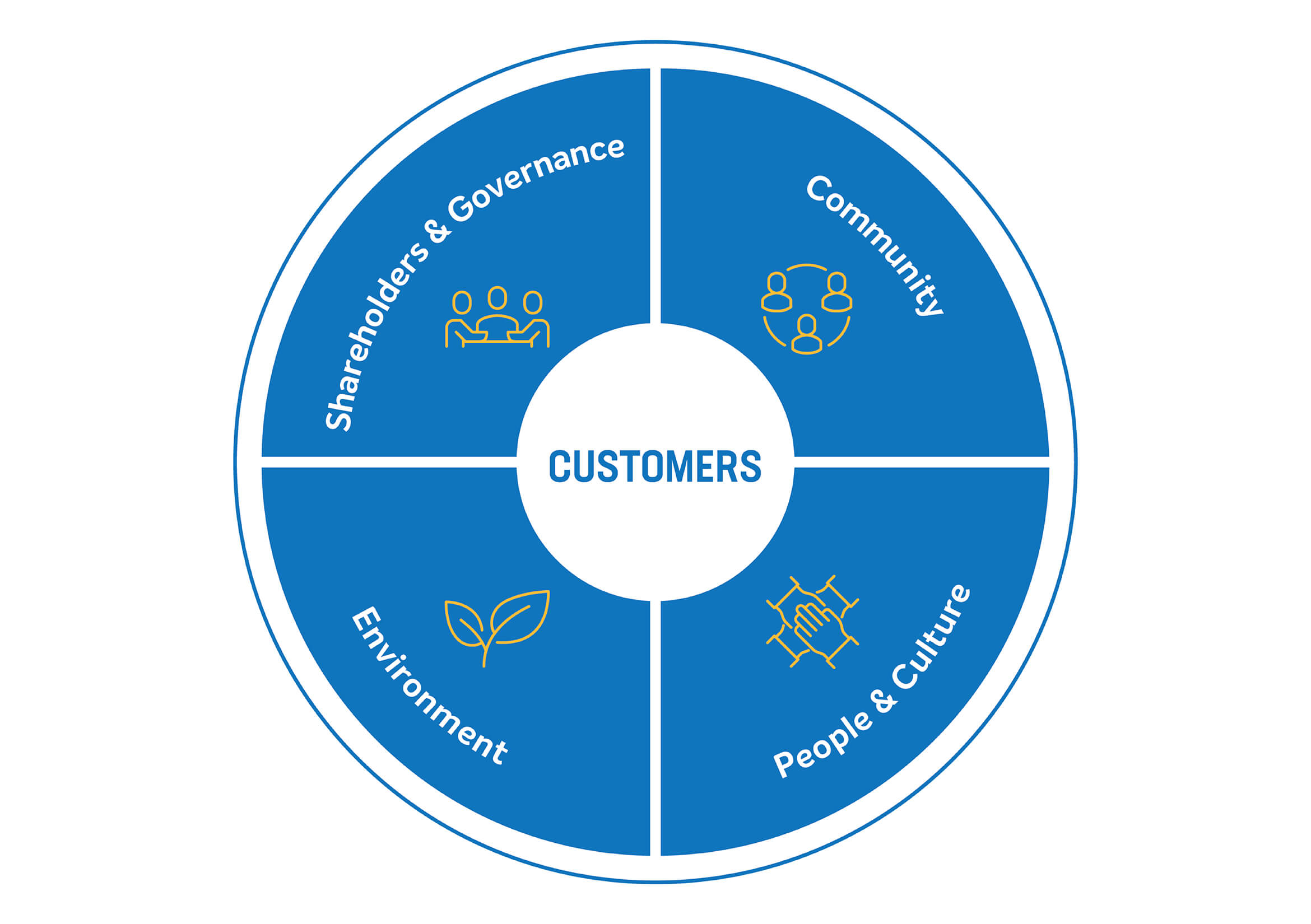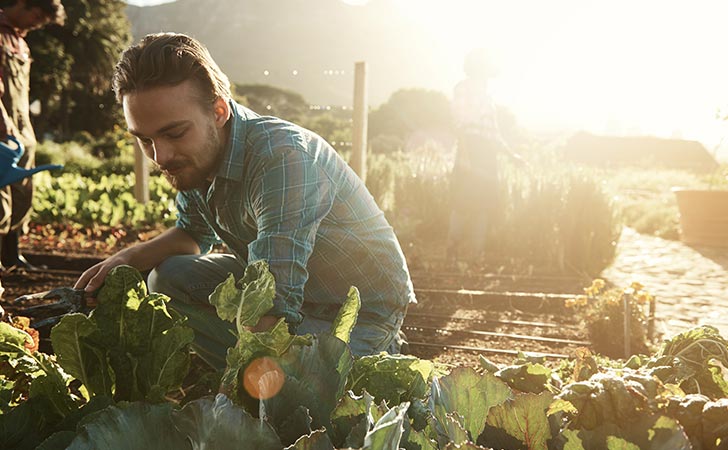Our sustainability approach is centred on long term value creation that ensures we remain relevant to our customers, people, shareholders and the communities in which we operate. We have been evolving our approach and we recognise this work is never really complete. What’s important is being able to demonstrate and measure our impact and this report is our way of keeping ourselves accountable to deliver our sustainability strategy.
We are committed to building a sustainable business and continue to lift our aspirations as to how we manage the environmental, social and governance impacts of our business. As a financial services provider, our core function is gathering deposits from and lending to customers. This is why our sustainability efforts focus on BOQ’s economic and customer impacts. And because our business contributes to how capital is allocated in the economy we are conscious of how our customers use funds that we lend. You can find out more about this by visiting the Approach to sustainable lending section of our website.
We manage a range of sustainability issues as part of our everyday business operations. While all of these issues are important, our priorities may change over time.
Our non-financial performance measures highlight our performance against a range of key non-financial metrics. These measures are featured in our 2023 Sustainability Supplement, which focuses on how we engage with stakeholders as well as on our performance against social, environmental and economic challenges and opportunities.
The following framework guides BOQ’s approach to sustainability. It is based on how we deliver our business strategy to contribute to the interests of BOQ’s stakeholders.

Customers
Putting customers at the heart of everything we do
- Customer satisfaction
- Transparent, accessible and affordable products
- Being available for customers when and how they want
- Customer complaint resolution
- Financial difficulty support
- Information security and privacy protection
Shareholders & Governance
Doing the right thing
- Transparent disclosure
- Business conduct and ethics
- Financial and business management
- Compliance
- Remuneration
- Sustainable shareholder returns
- Risk management
Environment
Responsibly managing our environmental impacts
- Efficient use of resources
- Environmentally-friendly property and assets
- Reducing environmental impact of operations
- Understanding environmental impact of our customers
Community
Supporting the communities we operate in
- Community investment
- Community partnerships
- National fundraising partner
- Employee initiatives
People & Culture
Creating a place where people love to work
- Employee engagement and retention
- Diversity, inclusion and flexibility
- Workplace health and safety
- Investing in developing our people
- Franchisee support
- Reward and recognition

Supplier Portal
Creating meaningful partnerships to support our local communities
- Social Partnerships
- Our Social Procurement Strategy
- Supplier Code of Conduct
- Modern Slavery





